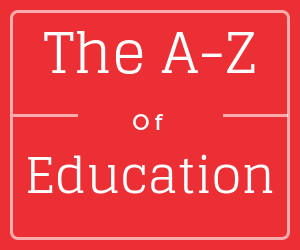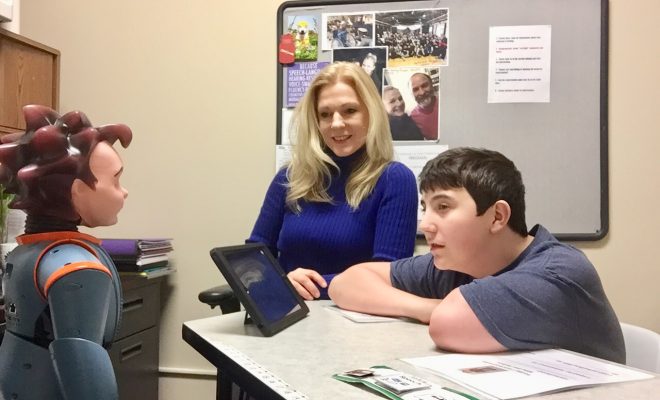Learning from successful learning: A look at the new NCLB
**The Edvocate is pleased to publish guest posts as way to fuel important conversations surrounding P-20 education in America. The opinions contained within guest posts are those of the authors and do not necessarily reflect the official opinion of The Edvocate or Dr. Matthew Lynch.**
A guest column by Brian Aull
Congress is now ironing out a revision of the No Child Left Behind Act. This 2001 law mandated yearly testing with the goal of holding federally funded public schools accountable to yearly improvements on the scores. The current bill gives states more latitude in determining learning goals and deciding what to do about schools that are failing by standard measures.
The renewed debate on the role of government brings to mind Onora O’Neill’s insight: “Instead of working towards intelligent accountability based on good governance, independent inspection and careful reporting, we are galloping towards central planning by performance indicators, reinforced by obsessions with blame and compensation.” This is an opportunity to reflect about how we judge success in education. What does a good teacher or a healthy public school community look like? Perhaps the answers come not from test score statistics but from the kind of anecdotal evidence that gives insight into what happens on the ground to make a school succeed.
In late June we said farewell to a giant in the field of elementary education. Marva Collins was a teacher in the Chicago public schools in the 1960’s. Frustrated by bureaucracy and teacher apathy, she left the system and started a one-room schoolhouse in her attic. She emptied her pension fund to pay for the needed construction work. She recruited a small group of students that the public schools had given up on. After one year, these pupils’ test scores had improved by at least five grade levels. 60 Minutes aired a story about her remarkable classroom. When Ronald Reagan became president, he unsuccessfully tried to convince her to be his Secretary of Education.
It’s instructive to look at the secrets of her success. Rather than teaching students to regurgitate facts for a test, she taught them how to think critically, how to ask meaningful questions. Her pupils would read Plato’s Republic, for example, and talk about the meaning of justice. She viewed her work as nourishing the children’s souls as well as their minds. She said that scholarship divorced from moral concerns is dangerous. She created a genuine community in the classroom where the pupils learned from mistakes without fear of ridicule and applauded each other’s successes. At the core of her motivation was love. “There is no magic here,” she said. “I do not walk on water. I do not part the sea. I just love children.”
Marva Collins had the luxury of being both teacher and principal. One might say that her success is a rare exception and could not be widely replicated in public schools. But there are many success stories from which we might learn. One 2007 study highlighted Fraser Academy (a pseudonym), a failing elementary school in a high-poverty district of Buffalo, New York. In 1997 a new principle came on board. In a few years, Fraser changed from a place parents wanted to avoid enrolling their children to a place with a waiting list.
What did this new principal do? Her work was about transforming the culture of the school, making it a genuine community that included parents, teachers, and students. She encouraged strong patterns of parent involvement. She had an “open door” policy, and listened to the concerns of all members of the school community. She believed that the children could learn and set a clear expectation that they had a right to a school that served that purpose. She supported the professional development of the teachers and staff, and encouraged them to experiment and to be active learners themselves. She never expected the teachers to do things that she was unwilling to do herself. The culture of the school reflected virtues of service, dedication to learning, and building community. While her leadership was a big factor in this, there were material resources that also made a big difference; she was hired as part of a partnership with a bank that provided $500,000 a year in supplemental funds to improve the school. It was an arrangement that gave her substantial autonomy to put her vision into practice.
What are the lessons to be learned from such success stories? No Child Left Behind focused on standardized testing as the measure of school improvement, and punished schools that did not measure up. This created powerful incentives to reduce the classroom to a test prep center, manipulate tests, lower standards, and otherwise game the system.
Most importantly, the law’s emphasis on “scientific” and quantifiable performance measures conceals the stories that tell us why schools succeed or fail. “Teaching to the test” was the last thing on Marva Collins’ mind. Fraser Academy created a culture in which the school community worked collaboratively to evaluate its own success using measures that everyone agreed made sense. When the school was working well, you could sense it within seconds of walking in the door.
Fresh thinking is needed about the role of both state and federal governments. How can government be a resource rather than a regulator, facilitating the spread of best practices and providing funding to enable struggling school communities to adopt them?
_____________
Brian Aull is research scientist at MIT and the author of The Triad: Three Civic Virtues That Could Save American Democracy. His blog on civic renewal can be found at
http://www.AwakenDemocracy.com





